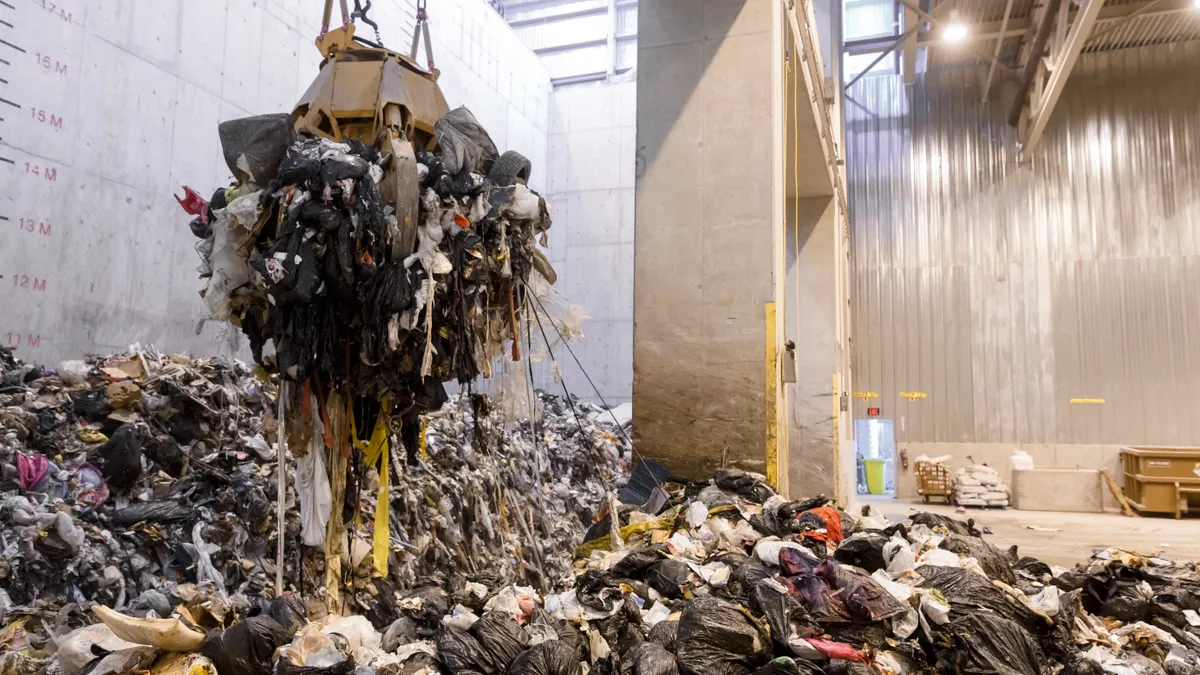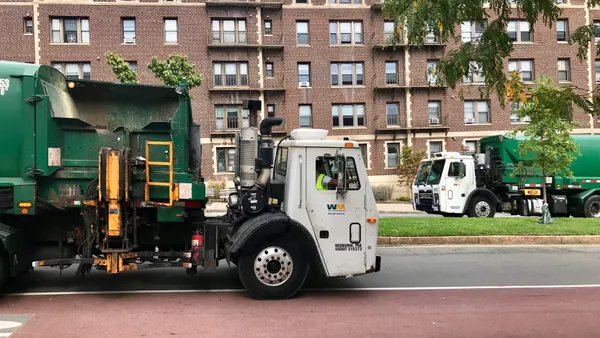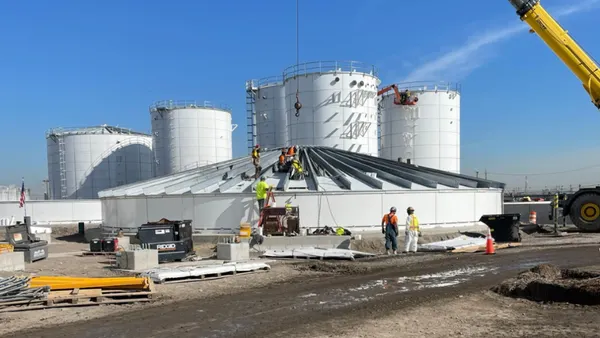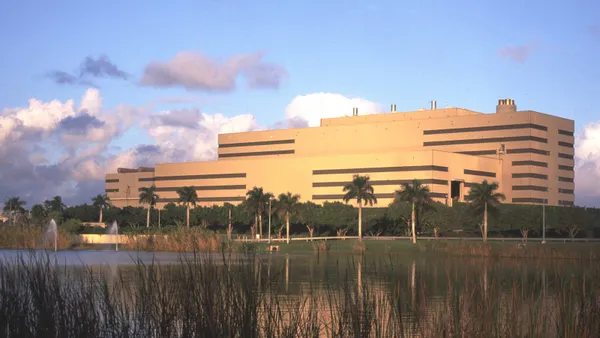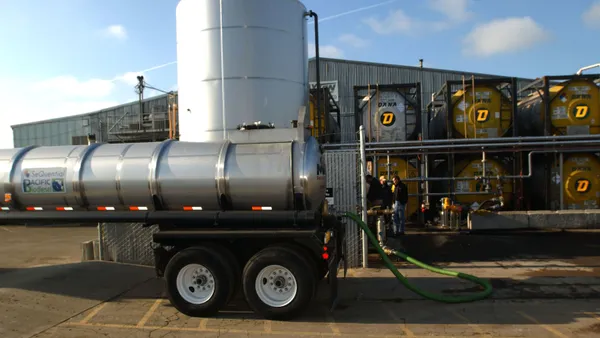Dive Brief:
- A coalition of health and environmental groups have asked the Oregon Department of Environmental Quality (DEQ) to deny Covanta's Marion incinerator an air pollution permit, the Statesman Journal reported. The nine groups, led by Oregon Physicians for Social Responsibility (Oregon PSR), argue the proposed permit poses an environmental justice issue for neighboring communities and will exacerbate climate change effects.
- Covanta's air pollution permit expired in April 2017, but the company filed on time for renewal so its continued operations are legal. Under the proposed permit, emissions limits for fine particulate matter (PM2.5) would increase from 12 to 16 tons annually, while greenhouse gas emissions limits would double yearly from 107,100 to 214,000 tons. James Regan, director of communications for Covanta, told Waste Dive that the plant typically operates 60% to 80% below current state standards and is a "great asset to the community."
- It is unclear what effect pushback from environmental groups might have. The company has no reason to anticipate anything but a "typical review process" from DEQ, Regan said, and argued the plant is a better solution to issues like climate change than a landfill. "People have concerns [about] a stack in their community, I understand that," he said. "But we like to point to the science."
Dive Insight:
Covanta Marion, which accepts the bulk of waste for Marion County, processes approximately 550 tons of MSW daily, generating up to 13.1 megawatts (MW) of energy. But the plant is facing scrutiny as climate and environmental concerns mount.
Like landfills, incinerators generate significant greenhouse gas emissions. But waste-to-energy (WTE) advocates argue their facilities are a better climate solution. According to the U.S. EPA, solid waste combustion collectively contributed 8.8% of greenhouse gas emissions for the waste sector in 2018, compared to 81.9% from municipal landfills. Incinerators also handle a much smaller share of the U.S. waste stream.
Particulate matter is another issue. The particles, which have a diameter of less than 2.5 micrometers — or 3% of a human hair — are so small they can easily enter lungs and impair functionality. They accumulate from both man-made and naturally occurring processes, but pose a severe health hazard and no level of exposure to PM2.5 is considered completely safe, according to the World Health Organization.
Those factors are driving the resistance to Covanta Marion's permit renewal. The 32-page letter opposing the renewal asserts that DEQ should reject the permit until "a credible and comprehensive evaluation" indicates that Covanta Marion poses neither a major health risk nor contributes an outsized percentage of emissions.
The signatories also call for a health risk assessment for neighboring communities, along with studies of air, soil, and water to test for incinerator-linked pollutants. Other recommended items include a "gas lifecycle analysis" comparing the plant with landfill and "zero waste" options. Damon Motz-Storey, a program director with Oregon PSR, told Waste Dive that Covanta Marion is the state's 20th biggest source of climate pollution.
"Covanta claims to be more eco- and climate-friendly than other waste management options, but the truth is that their facility is too old and in need of repair to ever be an ideal waste solution," he argued.
Global Alliance for Incineration Alternatives (GAIA) U.S. & Canada Program Director Denise Patel, whose group signed on to the letter, took a similarly hard line. "Not only do incinerators contribute to climate change, lower-income communities and communities of color have to bear the brunt of the impacts," she said in a statement to Waste Dive.
While environmental groups target the incinerator, Covanta is pushing for recognition in the opposite direction. The company argues the plant is actually providing renewable energy and should receive tax incentives, without which Covanta Marion will likely close. Regan of Covanta also noted that if the incinerator were to shutter, the county's waste would be hauled potentially hundreds of miles away, a process that would contribute to emissions.
Calling the opposing groups "misguided," Regan said the plant is a boon in fighting global warming. "Their community has a great example of a plant that reduces greenhouse gases as opposed to landfills," he said.
Scrutiny of the plant is set to continue under the Cleaner Air Oregon initiative, which will probe health risks in communities near the state's biggest polluters, including Covanta Marion, with a review set for April 2020. "The plant operates extremely well and we think that review would show how well the plant performs," Regan said when asked if Covanta has any concerns about that process.


